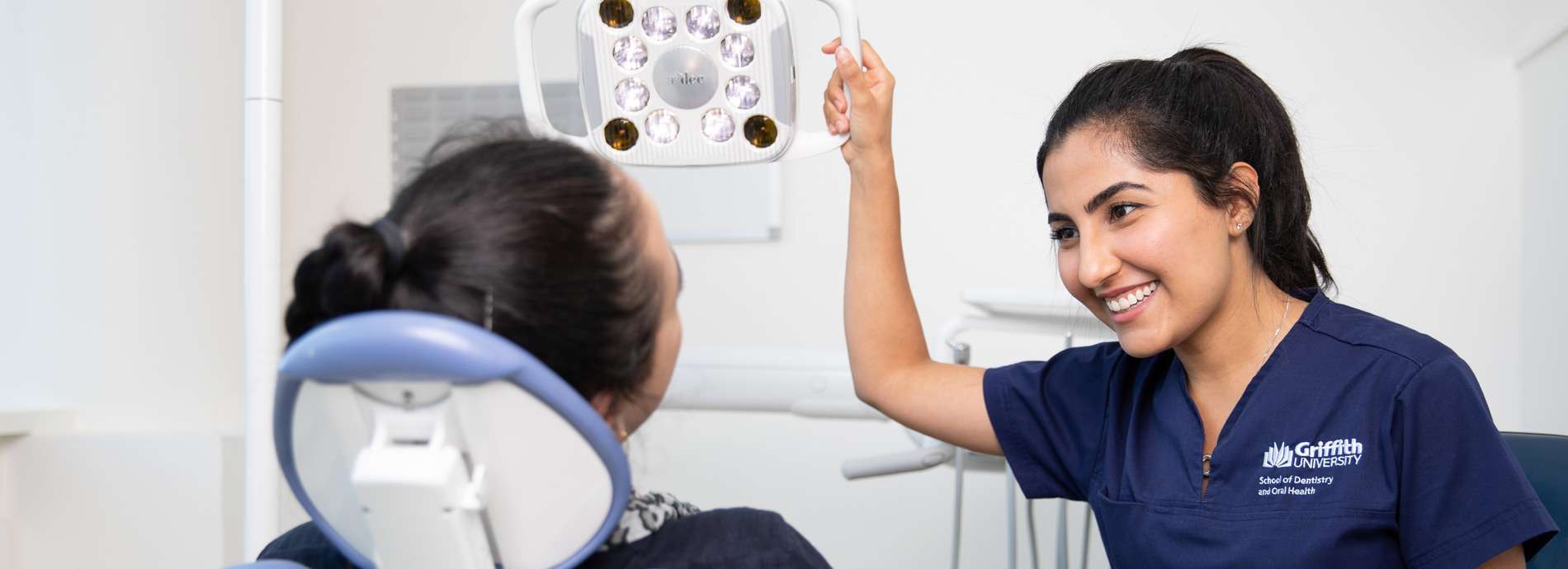Mayo Clinic offers appointments in Arizona, Florida and Minnesota and at Mayo Clinic Health System locations.
Tension-type headaches: Self-care measures for relief
Headaches can interfere with daily life. But healthy lifestyle choices can help you head off the pain. Start with diet, exercise and relaxation.
By Mayo Clinic Staff
Nearly everyone knows the pain of tension-type headaches. But the world doesn’t stop when the pain strikes. Medicines may relieve the pain. But simply taking good care of yourself may help prevent a headache.
Make healthy lifestyle choices
A healthy lifestyle can promote good overall health. It also may help prevent all types of headaches, including tension-type headaches. Here are the basics:
- Eat nutritious foods on a regular schedule. Don’t skip meals, especially breakfast. Drink plenty of water each day.
- Exercise regularly. Exercise releases chemicals in the body that block pain signals to the brain. Talk with your health care provider about exercise and choose activities you enjoy. They might include walking, swimming or cycling. But be sure to start slowly. Exercising too intensely can cause some types of headaches.
- Get enough sleep. Wake up and go to bed at the same time every day — even on weekends. Relax before you go to bed. If you don’t fall asleep within 15 minutes, get up and read or do something soothing until you’re drowsy. Avoid medicines that contains caffeine or other stimulants that can affect sleep. This can include some headache medicines. Also keep in mind that sleep apnea can cause tension-type headaches, especially if you have headaches in the mornings. Sleep apnea is a sleep disorder in which breathing stops and starts throughout the night. Seeing a health care provider and getting treatment for sleep apnea can ease its symptoms.
- Avoid large amounts of caffeine. Caffeine may help curb headaches. But heavy daily caffeine use can lead to headaches. Generally, getting more than 400 milligrams of caffeine a day — more than about four cups of coffee — can cause headaches and irritability. Regular caffeine use also increases the risk of headaches. Even quitting caffeine can cause headaches. This may happen whether you quit suddenly or cut back gradually.
- Be mindful of common pain medicines. You can buy pain medicine at the store. But using this medicine more than nine days a month can make headaches harder to treat. If this is the case, see a health care provider.
- Quit smoking. The nicotine in cigarette smoke reduces blood flow to the brain. It also triggers a reaction in the nerves at the back of the throat. These changes can lead to a headache.
Keep stress under control
Stress and tension-type headaches often go hand in hand. To reduce stress, try these simple tips:
- Simplify your life. Don’t look for ways to squeeze more activities or chores into the day. Instead, try to do less.
- Take a break. If you feel overwhelmed, a few slow stretches or a quick walk may help lower your stress level.
- Breathe. Take several deep breaths and count to 10 to help reduce feelings of stress.
- Adjust your attitude. Think positive thoughts. Don’t think that something is impossible. Tell yourself that you are up to the challenge.
- Let go. Don’t worry about things you can’t control.
Ease muscle tension
Tense muscles can trigger tension-type headaches. Apply heat to relieve tense neck and shoulder muscles. Use a heating pad set on low, a hot water bottle, a hot shower or bath, a warm compress, or a hot towel. Or apply ice or a cool washcloth to the forehead.
Massage also can relieve muscle tension — and sometimes headache pain. Gently massage your temples, scalp, neck and shoulders with your fingertips, or gently stretch your neck.
Relax
Take time to unwind every day. Try this deep-breathing exercise:
- Lie down on your back. Or sit comfortably with your feet flat on the floor and your hands in your lap.
- Imagine yourself in a peaceful place such as a beach or quiet forest. Keep this scene in your mind.
- Breathe in and out slowly and deeply for at least 10 minutes.
- When you’re done, sit quietly for a minute or two.
Try to practice these breathing exercises or another form of relaxation every day.
Keep a headache diary
A diary may help you learn what triggers your tension-type headaches. Note when your headaches start and your activities. Also record how long the headaches last and anything that provides relief. The diary may help you spot patterns in your daily habits that may lead to headaches.
Look for improvements in your headaches as you make additional healthy lifestyle changes.
- Headache: Hope through research. National Institute of Neurological Disorders and Stroke. https://www.ninds.nih.gov/Disorders/Patient-Caregiver-Education/Hope-Through-Research/Headache-Hope-Through-Research. Accessed Sept. 15, 2022.
- Cutrer FM, et al. Pathophysiology, clinical manifestations, and diagnosis of migraine in adults. https://www.uptodate.com/contents/search. Accessed Aug. 13, 2020.
- Your guide to healthy sleep. National Heart, Lung, and Blood Institute. https://www.nhlbi.nih.gov/health-topics/all-publications-and-resources/your-guide-healthy-sleep. Accessed Aug. 13, 2020.
- LaRowe LR, et al. Pain, nicotine and tobacco smoking: Current state of the science. Pain. 2020; doi:10.1097/j.pain.0000000000001874.
- 3 tips to manage stress. American Heart Association. https://healthyforgood.heart.org/be-well/articles/3-tips-to-manage-stress. Accessed Sept. 15, 2022.
- Swanson JW (expert opinion). Mayo Clinic, Rochester, Minn. July 23, 2018.
- Bordeaux B, et al. Benefits and risks of caffeine and caffeinated beverages. https://www.uptodate.com/contents/search. Accessed Aug. 13, 2020.
- Kissoon NR (expert opinion). Mayo Clinic. Sept. 20, 2022.
- Sun-Edelstein C, et al. The evolution of medication overuse headache: History, pathophysiology and clinical update. CNS Drugs. 2021; doi:10.1007/s40263-021-00818-9.
See more In-depth
Overview
What are headaches?
Headaches are a common health problem. Almost everyone experiences one at some point in life. But they’re not all the same. Medical experts group headaches into more than 100 types.
For most people, headaches lead to minor aches or pains and happen occasionally (every once in a while). Less commonly, more severe headaches (such as migraines) can cause throbbing pain. Some headaches may make routine tasks difficult or near impossible.
Rarely, severe, sudden head pain can be a sign of a serious health problem, such as a brain tumor.
What are tension-type headaches?
Tension headaches are the most common type of headache. These headaches often cause mild-to-moderate pain around the head, face or neck. They usually don’t cause other symptoms (like nausea or vomiting). Healthcare providers generally don’t consider tension headaches to be dangerous.
Your healthcare provider may call your tension headache, “tension-type headache. This is what this headache is called by the official medical publication that classifies all headache disorders.
What are the types of tension-type headaches?
Healthcare providers break down tension headaches into two main types. They base the type on how many headaches you have and how often:
- Episodic tension-type headaches happen less often (fewer than 15 days a month). Your provider may call them “infrequent” if you have one or fewer headaches each month.
- Chronic tension-type describe when your headache days outnumber headache-free days. Chronic tension headaches happen 15 or more days each month for more than three months in a row.
How common are tension headaches?
People don’t always see their doctor for a tension headache, which makes exact numbers hard to predict. Researchers estimate that as many as 2 in 3 adults in the U.S. get tension headaches.
Chronic tension headaches are much less common. They affect an estimated 3% of adults. Women get tension headaches more often than men.
Symptoms and Causes
What causes tension headaches?
Researchers haven’t identified one single cause for tension headaches. This headache type is not hereditary (run in families).
Some healthcare providers believe tightened muscles in the back of your head or neck may trigger (bring on) tension headaches.
What are some triggers that may bring on tension-type headaches?
You may be more likely to have tension headaches if you have:
- Eye strain, such as from staring at a computer screen for a long time.
- Pain in other parts of your head and neck caused by problems such as temporomandibular disorders.
- Problems sleeping, such as insomnia.
- Stress related to family, work or life challenges, such as starting or losing a job or juggling too many commitments.
How does a tension-type headache feel?
People experience tension headache symptoms differently. Some people describe tension headache pain as feeling like someone (or something) is squeezing both sides of their head together or a band around their head.
You may have pain that’s:
- Constant (but not throbbing).
- Mild or moderate (not severe).
- On both sides of the head.
- Better after you take over-the-counter pain relievers.
How is a tension-type headache different from a migraine?
Migraines are another common headache type. Migraines and tension headaches tend to cause different symptoms.
A migraine is more likely to cause:
- More severe pain.
- Throbbing or pounding pains.
- Symptoms focused on one side of the head.
- Pain that gets worse when you’re near bright lights or loud sounds.
- Nausea or vomiting.
How long does a tension-type headache last?
That depends. A tension-type headache may last for 30 minutes or (less commonly) months. In general, episodic tension headache symptoms tend to come on slowly and end sooner. They often happen in the middle of the day. Episodic headaches usually don’t last longer than a week.
People with chronic tension-type headaches can have symptoms that last for months at a time. Pain may stay at the same level of discomfort for days. While uncommon, these headaches can take a toll on your quality of life.
Is a tension-type headache dangerous?
Not according to medical experts. While chronic tension-type headaches can disrupt your life, tension headaches don’t tend cause serious health issues.
Sometimes tension-type headaches may be a sign of an underlying disorder such as thyroid disease or an underlying tumor or a primary headache disorder, such as chronic migraine or new daily persistent headache. Anyone over age 50 with a new onset headache should see their doctor for an evaluation .
Diagnosis and Tests
How are tension-type headaches diagnosed?
No test exists to definitively diagnose tension headaches. Your healthcare provider will start by reviewing your medical history. They will then examine you to evaluate your symptoms.
Your provider may ask you a lot of questions to learn more about your symptoms, such as:
- Do your symptoms feel worse at certain times of the day?
- Do your symptoms feel worse after eating certain foods?
- Do over-the-counter pain relievers help you feel better?
- How often do you have symptoms?
- How would you describe your stress levels?
A headache specialist will use a diagnostic manual called the International Classification of Headache Disorders-3 to make sure that you fulfill criteria for tension-type headache.
In some cases, your provider may order an imaging scan, such as an MRI. Imaging tests can help rule out less common but potentially serious causes of your symptoms. Learn more about headache diagnosis and tests.
Management and Treatment
How are tension-type headaches treated?
If you get a tension headache every so often, over-the-counter pain relievers may effectively treat your pain. Your provider may recommend you first try one of these options to relieve your symptoms:
- Acetaminophen (Tylenol®).
- Aspirin.
- Ibuprofen (Advil®, Motrin®).
- Naproxen sodium (Aleve®).
Are there any other tension headache medication options?
If over-the-counter pain relievers don’t help, your provider may prescribe medication. Certain medications reduce how often your headaches happen or how much they hurt. The antidepressant amitriptyline (Elavil®) has helped some people with chronic tension headaches. Opioids should not be used.
Are there any risks to taking medication to treat tension headaches?
Over-the-counter pain relievers are generally safe. But overusing pain relievers can cause other problems. Make sure to follow the instructions on the bottle carefully. Always check in with your provider if you feel the need to use pain relievers more than twice a week.
Take these medications only when you need them. Use the smallest dose that relieves your pain.
In general, overusing pain medications may cause:
- Headaches: Taking pain relievers too often can actually cause a headache (called rebound headaches) when you stop taking the medicine. This effect is similar to withdrawal.
- Other side effects: All drugs have side effects. Avoid taking aspirin or other nonsteroidal anti-inflammatory drugs (NSAIDs), such as ibuprofen, too often. Overuse may cause stomach pain, bleeding or ulcers. If you take any medication regularly, discuss the risks and benefits with your doctor.
- Reduced benefits over time: Your body can build up a tolerance (get used to) any medication. You may notice that a medication you’ve used regularly doesn’t work as well as it once did.
- Dependence: Some medications can become addictive. They may pose more risks than benefits. For that reason, healthcare providers usually recommend against prescribing benzodiazepines and narcotics (such as codeine and oxycodone) to treat tension headaches.
Can medication cure tension-type headaches?
No treatment (medication or otherwise) can cure tension headaches. Medicines help you manage and get relief from your symptoms so that you can enjoy more of life.
Can I treat a tension-type headache without medication?
Absolutely. While medication may be helpful, it’s not a substitute for coping with stressors that may cause your headaches.
Other tension-type headache treatment options include:
- Home remedies, like placing a hot or cold compress where it hurts, may help you feel better.
- Counseling can help you identify what’s causing your headaches and learn useful coping methods.
- Relaxation training includes deep breathing exercises and listening to soothing music. These methods can relax your muscles and relieve pain.
- Meditation.
- Biofeedback uses sensors connected to your body to monitor and then counteract your body’s physical functions. It teaches you ways to manage stress by identifying and then reducing muscle tension. Biofeedback may relieve or prevent headaches.
Prevention
How can I prevent tension headaches?
Researchers have yet to uncover how to prevent all headaches. If you experience chronic tension-type headaches or frequent tension-type headaches certain medications may stop some headaches before they start. These are antidepressants such as amitriptyline or venlafaxine or duloxetine. These work on the pain centers in the brain.
Overall, lifestyle changes and reducing your response to stress is the best way to prevent tension headaches. The most effective stress management tool is the one that fits into your life and you feel good using. You may want to try:
- Massage therapy.
- Exercising regularly.
- Staying hydrated.
- Getting regular, restful sleep.
Outlook / Prognosis
What should I expect if I have tension-type headache?
Tension headaches can be annoying. In severe cases, they can disrupt your personal life or career in big ways. But most cases cause minor symptoms. Medication and other therapies help many people overcome their symptoms with minimal interruptions to their life.
Living With
When should I call the doctor?
Most headaches aren’t dangerous. Rarely, headache pain can be a sign of a serious medical problem. You should seek immediate medical care if you have:
- Stiff neck.
- Sudden, severe headache that gets worse quickly.
- Fever that doesn’t go away.
- Headache after concussion (head injury).
- Confused thoughts or slurred speech or weakness.
- New onset headache over the age of 50.
- Sudden change in your headache pattern.
- New onset headache in someone with cancer or autoimmune disease.
A note from Cleveland Clinic
Almost everyone experiences tension headaches. But that doesn’t mean you need to live with the pain. Over-the-counter pain relievers may be enough to relieve minor symptoms. If you have a headache more days than not, reach out to your provider for guidance. Medication and stress management help many people reduce the impact of tension headaches on their life. Massage, meditation, exercise or talking to someone you trust are just some of your options. The best stress-management therapy is the one that works for your lifestyle and feels right to you.



